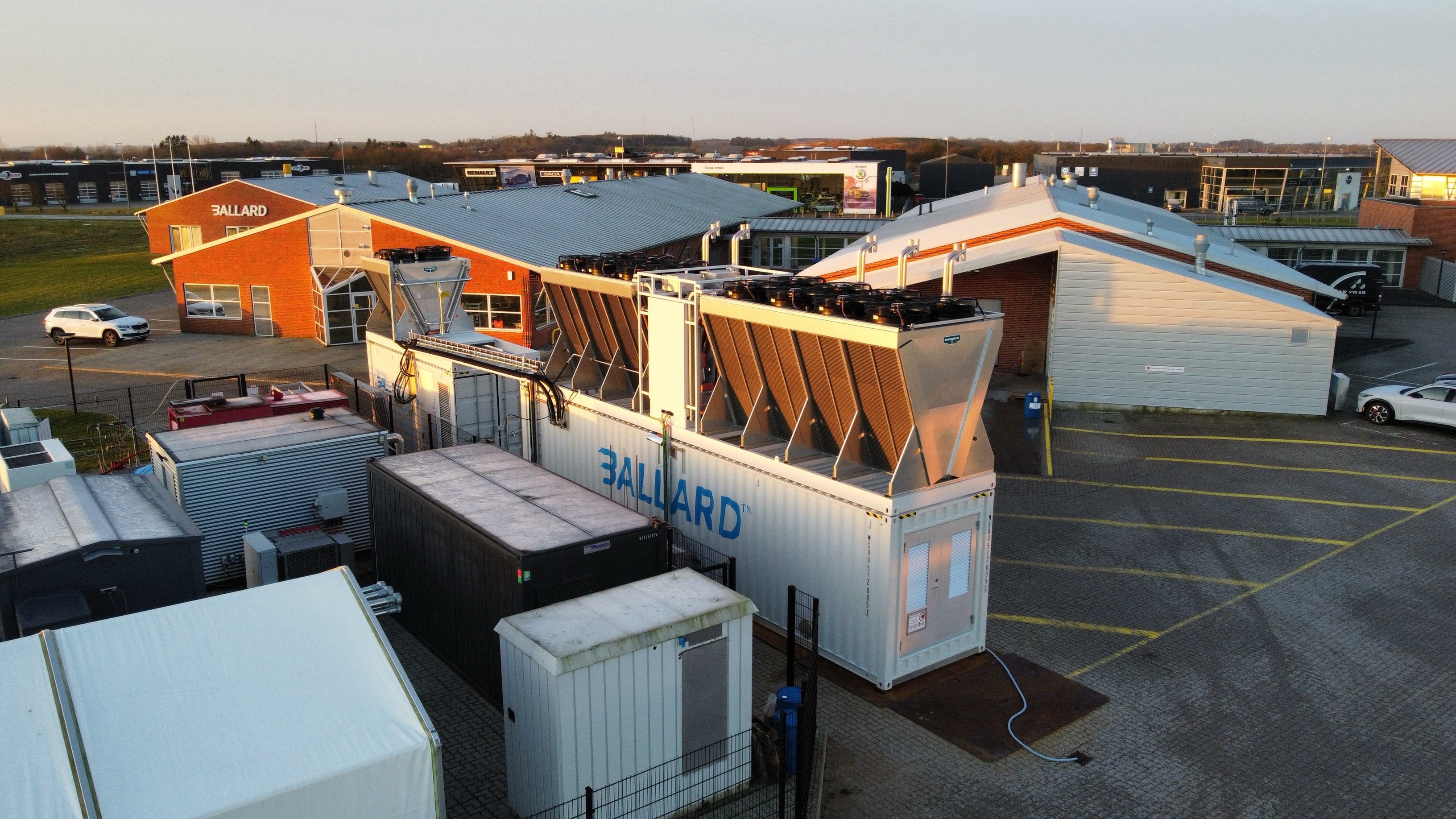
Large distribution centers are facing increasing consumer pressure to provide zero-emission deliveries, often on a tight 24-hour schedule. Electric vehicle (EV) fleets can meet the emissions challenge but depend on fast, frequent, and always reliable charging capabilities. A large logistics depot in Germany has now installed one of the first self-contained and grid-independent fuel cell EV charging systems, providing a dependable charging solution for its large-scale EV fleet operations for last-mile deliveries.
Ballard Power Systems recently commissioned the 1MW fuel cell system for charging of the distribution center’s approximately 80 electric vans that are primarily used for last-mile deliveries, servicing urban routes with a daily operational distance of around 300km. To support this high utilization rate, the electric fleet must be recharged daily, with most vehicles being recharged in parallel at night.
The powerful fuel cell system operates independently from the electrical grid and enables fleet operators to scale up and manage their own charging infrastructure in line with operational needs – ensuring fast and uninterrupted charging capacity to avoid costly operational downtime.
.png?width=1920&height=1080&name=image%20(2).png)
One of the primary advantages of the system’s architecture is its scalability. As EV fleets grow, additional fuel cell modules can be added to meet increasing power demands without requiring fundamental changes to the system layout or the site’s energy management.
The Ballard-powered system is assembled in a 40ft container with five 200kW fuel cell modules, providing 900kW AC net power. Designed as a turn-key solution, the container includes all essential subsystems to convert DC output from the fuel cells into AC for vehicle charging, along with integrated thermal management and a grid voltage transformer. This set up allows for deployment as an autonomous microgrid or as a hybrid system supplementing grid power.
To stabilize power output and manage load fluctuations, the system is coupled with a battery energy storage package. The battery is designed to handle approximately 50% of peak load impact and is housed in a separate 20-foot container. This approach ensures that energy buffering meets the specific stability and performance requirements of the site.
The pre-integrated and containerised set up of the complete system, comprising the fuel cell, battery and all sub-systems, enabled installation onsite within weeks, supported by Ballard’s full supply service and spare parts support to ensure smooth operation.
The containerized solution is engineered and certified to meet European standards for stationary fuel cell power generation. Its scalable nature supports power generation up to multiple MW, with flexible integration and easy installation, designed for applications such as back-up power systems, electric vehicle charging, shore power, or peak shaving.